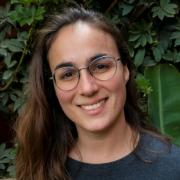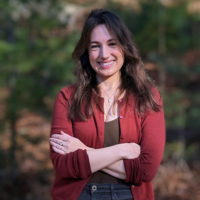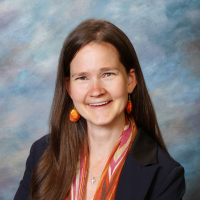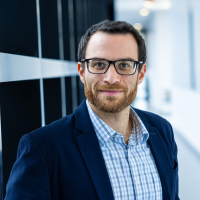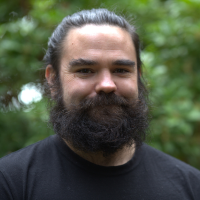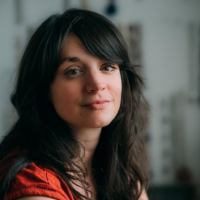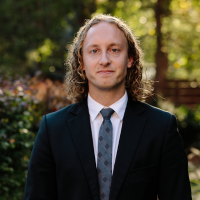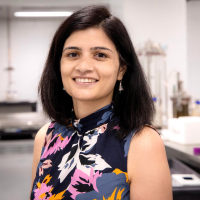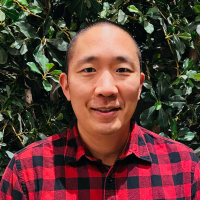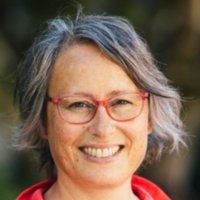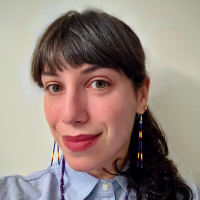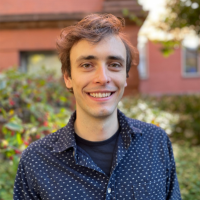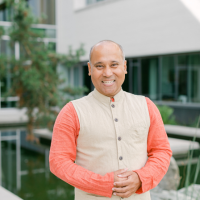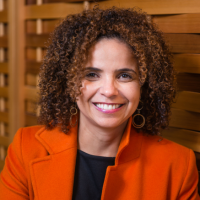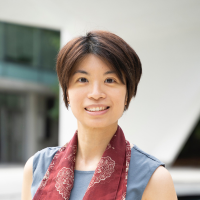Since 2014, the program has provided opportunities for new UBC faculty members to make connections with peers and foster interdisciplinarity while sharing ideas in a convivial setting.
Green College is the home of interdisciplinarity at UBC. Our work has been praised as "an exemplary incubator of interdisciplinary research and learning that realizes in path-breaking ways the ambition to cross-disciplinary exploration and dialogue that research-intensive universities pursue but find difficult to achieve."
Those selected as Leading Scholars are appointed for two years. In the winter term, the new cohort of Leading Scholars will meet several times as a group over lunch at the college. Then, in the following year, Leading Scholars will plan and run an academic series as part of the college's public interdisciplinary programming. We provide a budget for the purpose of bringing visitors and fostering academic communities through this series. This series may, if the cohort has interest, culminate in further collaborative interdisciplinary research and publication.
A call for applications to the 2026-28 cohort will be issued in the summer of 2026.

Karthik Akkiraju, Materials Engineering
Email: karthik.akkiraju@ubc.ca
Website
I lead a research lab that reimagines materials design through an absolute sustainability lens. Using a suite of experimental and computational tools, the Sustainable Materials Lab uses socio-environmental impact-informed materials design to design catalysts by accounting for the true costs and benefits of material extraction and usage. The research outcomes from my research offer choices for material substitution when materials are optimized for efficiency, environmental impact, and societal well-being. This framework will enable researchers, policymakers, and industry leaders to prioritize material innovation for both economic and human development objectives within the constraints of planetary material resources.

Peter Chen, Computer Science
Email: peter.chen@ubc.ca
Website
My work focuses on physics-informed AI and simulation—developing computational tools that make it easier, faster, and more accurate to model the physical world. I build methods that bridge physics, machine learning, and domain expertise, enabling applications from engineering design and robotics to biology, medicine, and digital arts. Much of my research grows through interdisciplinary collaboration: working with engineers on drones and underwater vehicles, food scientists on laser cooking, artists on film production, and scientists on efficient models for materials, tissues, and quantum systems. I’m motivated by how simulation and AI can serve society and connect people across fields.

Godwin Dzah, Law
Email: dzah@allard.ubc.ca
Website
My work focuses on international, comparative, and environmental law. I adopt a critical interdisciplinary approach to the study of natural resources law, law and environmental sustainability, climate law, and the law of the sea. I am interested in how African legal thought influences these areas of research and their impact on global legal orders.

Melissa Hunte, Language and Literacy Education
Email: melissar.hunte@ubc.ca
My background is in developmental and educational psychology, with expertise in assessment, measurement, evaluation, and mixed-methods research. My research portfolio encompasses work on fairness in educational assessment, human-centred AI, early intervention, and cross-cultural measurement. I have collaborated with computer scientists and programmers to develop digital learning platforms and AI-based scoring models, while critically examining issues of transparency, bias, and trust. I have also worked with interdisciplinary and cross-continental teams in Canada, China, India, and South Africa on early childhood development research, including harmonizing measures from preconception to age five, and evaluating the cultural appropriateness of assessment tools. My work is guided by complex systems and equity-oriented approaches.

Santiago Izquierdo-Tort, Forest Resources Management
Email: santiago.izquierdotort@ubc.ca
Website
My research explores how economic incentives and market-based approaches to forest governance contribute to livelihood, biodiversity, and climate goals. Much of my work focuses on the effectiveness and equity of public payment-for-conservation policies in tropical regions, mainly in Latin America, and the emergence of global markets for carbon and biodiversity credits. As an interdisciplinary economist, I collaborate across the social and natural sciences, and engage with policymakers, Indigenous peoples, and local communities to inform the design and implementation of forest interventions. I am co-holder of a UNESCO Chair in Socio-Economic Evaluation of Biodiversity and Ecosystems.

Bavisha Kaylan, Civil Engineering
Email: bavisha.kalyan@ubc.ca
Website
In my group, we seek to co-create engineering research with historically marginalized and underrepresented communities with the aim of improving health equity, building grassroots organizing, and ultimately working towards social and environmental justice. Throughout the research process, we aim to create equitable multi-stakeholder partnerships that enhance science literacy and build research capacity for non-academic partners. Using interdisciplinary methods, we currently focus on the intersection of health, engineered infrastructure, and toxin contamination.

Asher Leeks, Zoology
Email: asher.leeks@ubc.ca
Website
I study social evolution in viruses. Viruses are intrinsically social organisms; every aspect of the viral lifecycle can be influenced by social interactions, from replication within a cell to transmission between hosts. I use social evolution theory to understand how these interactions evolve and to predict their clinical consequences.

Lennon Mhishi, Anthropology
Email: lennon.mhishi@ubc.ca
Website
My interdisciplinary work, shaped through the prism of Zimbabwe, spans interests in Africa and its diasporas; music and migration; museums, material culture, and art practices; the afterlives of slavery and colonialism; and approaches to contemporary forms of exploitation and human rights in different African countries. My work foregrounds creative and collaborative, community-engaged research and curatorial work. I am currently working on projects exploring contestations around representations of enslavement, as well as on the intersections of museums, art practices, and the negotiation of home and belonging.

Dana-Lynn Mackenzie, Forest Resources Management
Email: danalyn.mackenzie@ubc.ca
Website
My work focuses on reconciliation, decolonization, and Indigenous peoples in Canada. As a Coast Salish person, I strive to honour my ancestors by raising Indigenous awareness and actionable goals towards reconciliation for those of settler descent, and also work towards making UBC a better place for generations yet to come.

Jennifer Moss, Creative Writing
Email: jen.moss@ubc.ca
Website
My research and teaching sit at the intersection of creative writing, new media, and audio storytelling. I teach creative writing for new media and podcasting, and I lead JAR Podcast Solutions, where theory and practice continually inform one another. I am interested in the relationship between content and form, and between artistic offering and audience experience. My academic work is shaped by cross-genre and cross-departmental collaboration, and an ongoing exploration of how emerging technologies open new possibilities for writers. I focus on immersive storytelling through sound and VR, and critical, creative engagement with the rise of AI in cultural production.

Joan Danielle Ongchoco, Psychology
Email: joan.ongchoco@psych.ubc.ca
Website
I am the director of the UBC Perception and Cognition Lab. We are especially interested in how we see and how we think, and the ways these interface with each other. To explore these questions, our work involves a broad range of stimuli—from blank grids, shadows, doorways, musical sequences, em-dashes, to countdown timers—spanning everyday objects and events that we have found to have more profound consequences for mental life than we might have initially thought.

Alberto Padoan, Electrical and Computer Engineering
Email: alberto.padoan@ubc.ca
Website
My research explores how complex systems can be understood, guided, and coordinated through feedback, data, and computation. I work at the intersection of control theory, optimization, and data-driven methods, with an interest in how algorithms interact with the physical, biological, and social world. My work develops mathematical tools to design reliable and transparent decision-making systems in settings marked by uncertainty, limited information, and large-scale interconnections. Application areas include mobility and traffic systems, and non-equilibrium dynamics in biological systems, with the broader goal of enabling safer, more adaptive, and more sustainable technologies.

CJ Park, Educational and Counselling Psychology, and Special Education
Email: cj.park@ubc.ca
My primary line of research lies at the intersection of vocational psychology and critical psychology. I am particularly interested in the career-related experiences of students and workers with marginalized identities. My current focus is on women students in STEM, whose career development is often influenced by intersecting barriers and opportunities. Alongside my work on vocational psychology, I have developed a recent interest in the application of AI in counselling and psychotherapy. I have recently conducted a scoping review of the ethical issues related to applying AI in counselling psychology as a first step in pursuing this interest.

Sadia Shirazi, Art History, Visual Art, and Theory
Email: sadia.shirazi@ubc.ca
Website
My work draws on postcolonial theory alongside the contributions of Black and Indigenous studies to study the work of a group of peripatetic artists in the post-World War II era, amidst the concurrent movements of decolonization and Black liberation. I am working simultaneously on a curatorial project and a book project. The exhibition looks at the work of an artist and lawyer who worked across Pakistan, England, and the United States from the 1950s to 2000s, and brought the first lawsuit against Queen Elizabeth for the restitution of the Koh-i-Noor diamond. My book project is a history of decolonial, feminist artists that bridges the Indian subcontinent, the Indian Ocean, Japan, Western Europe, and the United States during the second half of the twentieth century.

Silvia Stringhini, Population and Public Health
Email: silvia.stringhini@ubc.ca
Website
My research focuses on understanding how social, environmental, and biological factors across the life course shape health and aging trajectories. I lead and contribute to large population-based cohort studies in Canada and Europe, examining how early-life socioeconomic conditions and environmental exposures become biologically embedded and influence mental and physical health from childhood through adulthood. My work integrates epidemiology, social sciences, and biomarkers of biological aging to inform prevention strategies and policies aimed at reducing health inequalities across generations.

Meaghan Thumath, Nursing
Email: meaghan.thumath@ubc.ca
Website
Working at the intersection of public health, disinformation, and crisis response, my research aims to reduce health inequities and strengthen community resilience during public health emergencies.

Kimberly Yazzie, Forestry and Conservation Sciences
Email: kimberly.yazzie@ubc.ca
Website
My research seeks to understand the impacts of climate change and ecological disturbance on the patterns and distributions of salmon-habitat relationships in freshwater systems. A second line of research explores equitable knowledge production by engaging with diverse knowledge holders to co-develop climate solutions to inform decision-making in Indigenous communities for climate adaptation strategies. I am interested in disentangling how ecosystem function and resilience intersect and respond to land stewardship at different levels of land and water governance that support water, energy, and food security.
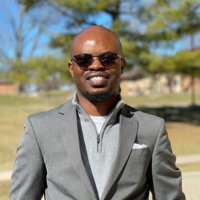
Tolulope Akinwole, Department of English Language and Literatures
Email: tolulope.akinwole@ubc.ca
Website
My teaching and research coalesce around African literatures, African screen media, cultural and critical theory, global Black literatures, urban studies, infrastructure studies, and Black geographies. My current book project, Moving Parts: Automobile Aesthetics in Postcolonial Africa, examines cultural expressions of spatial anxieties through literary and artistic representations of the public bus in African cities. I study the archives of literary, artistic, musical, and filmic texts that have formed around the public bus in order to offer the bus as a key material through which to reorient current understandings of the global Black city.
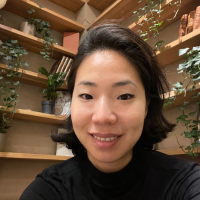
Ji-yoon An, Department of Asian Studies
Email: jiyoon.an@ubc.ca
Website
My research, broadly speaking, explores trends and patterns in Korean visual culture as a means of examining the symbiotic relationship between society and culture. My overarching approach can be encapsulated in the question: how does Korean culture document, fictionalize, or influence the micro-level changes that are occurring in Korean society? Adding to the rapidly growing canon of scholarship on Korean popular culture, I engage mainly with the study of films and television, while also touching on other mediums such as webtoons and experimental video artworks.
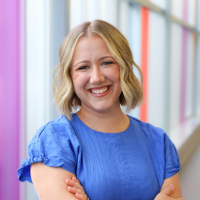
Katelynn Boerner, Department of Pediatrics
Email: katelynn.boerner@bcchr.ca
Website
My research focuses on making pain research and care more accessible and equitable for young people. We do this by understanding the developmental, individual, and social factors that are involved in pain, and by thinking creatively about how to use this information to change practice. I am especially interested in understanding the role of sex, gender, and neurodiversity on pain, and have projects looking at the experiences of chronic pain in gender-diverse and autistic youth.
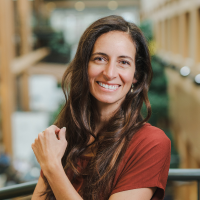
Tahia Devisscher, Department of Forest Resources Management
Email: tahia.devisscher@ubc.ca
In my research I focus on how to manage forests and other greenspaces in and around cities to support human well-being and build social-ecological resilience to climate change. I am also very interested in developing practical strategies to address the increasing disconnect between people and nature caused by rapid urbanization. The findings coming from my team aim to inform nature-based solutions to climate change and improve nature recovery initiatives that foster clear synergies between climate resilience, biodiversity enhancement, and human health in greener urban and peri-urban landscapes.
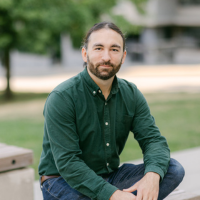
Scott Franks, Peter A. Allard School of Law
Email:franks@allard.ubc.ca
Website
My research focuses on the imposition of Canadian law on Indigenous peoples, their legal orders, and forms of governance. One line of research relates to the construction of Indigenous peoples' legal identities in Canadian law, while another focuses on anti-Indigenous racism in criminal jury trials.
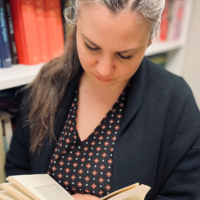
Alexandra Hoffman, Department of Asian Studies
Email: alexandra.hoffmann@ubc.ca
I am a scholar of Classical Persian Literature interested in gender & sexuality, embodiment, the history of emotions, and race/ethnicity in premodern Persianate literature and Perso-Islamicate culture. My current book project, Men in War, Men in Love: Masculinities in Premodern Persianate Poetry, 1000-1700 CE, examines the construction of masculinities in long narrative poems (masnavis). A main concern of my research is to engage with current scholarship in premodern Global Studies in order to incorporate Persianate Literature into Medievalist scholarship for a more diverse and less Eurocentric view of the Global Middle Ages.
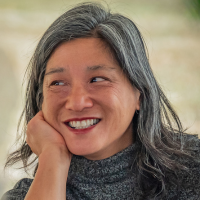
Germaine Koh, Department of Art History, Visual Art and Theory
Email: germaine.koh@ubc.ca
Website
I am a visual artist and organizer whose work crosses disciplines to explore connections between humans, technological and natural systems. I am bringing to UBC ongoing interdisciplinary research-creation projects, including the Home Made Home initiative to research, design-build and advocate for low-impact building forms; the League project focused on play as a form of creative practice; technological experiments and public activities looking at circular textiles, sustainable fibres and slow fashion; and projects using interactive electronics which bring into relationship the human, built and natural environments.
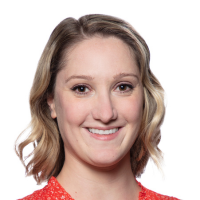
Nicole Krentz, Department of Pharmaceutical Sciences
Email: jayanicole.krentz@ubc.ca
Website
My research focuses on understanding how genetic factors contribute to diabetes risk. I am particularly interested in genes and mutations that impact how cells and tissues normally develop and how defects in these processes may lead to diabetes. By understanding the underlying genetic component of diabetes, my research strives to pave the way for improved strategies in prevention, diagnosis, and treatment of this complex disease.
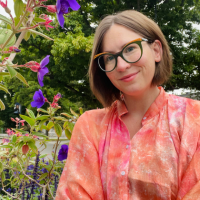
Anabel Maler, School of Music
Email: anabel.maler@ubc.ca
Website
My scholarship centers deafness, Deaf culture, and sign language in music studies, questioning how and why Deaf knowledge has been historically excluded from music research, and developing new, cross-disciplinary methodologies for analyzing the musical outputs of Deaf culture. By centering marginalized Deaf perspectives, I challenge existing definitions of music, ultimately redefining music as movement. In doing so, I not only diversify our current understanding of music and musical experience, but I bring to light new repertories for analysis and develop new analytical techniques and notation systems for engaging with these repertoires.
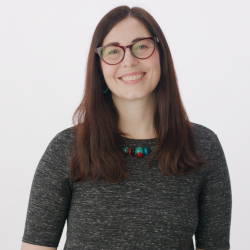
Elizabeth "Biz" Nijdam, Department of Central, Eastern and Northern European Studies
Email: biz.nijdam@ubc.ca
Website
My work focuses on the intersections of popular media and social change, with a particular emphasis on memory cultures, visual storytelling, and critical historiography. I research how comics, graphic novels, and other media engage with historical narratives, foster public discourse, and challenge dominant ideologies. My book manuscript, Graphic Historiography: East German Memory Cultures in Comics & Graphic Novels, examines how comics reinterpret East German history and memory. Through teaching, research, and community engagement, I explore how popular media can facilitate understanding on complex social issues, fostering multilingualism, and promote decolonization and reconciliation.
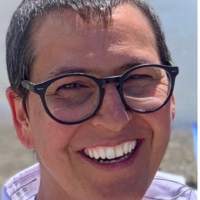
Jac Nobiss, School of Social Work
Email: jax.nobiss@ubc.ca
My research delves into Indigenous identity regarding intersectional dynamics. Many of these intersections include challenges that affect the health and well-being of Indigenous Peoples. Applications of pan-identity often conflate history, experiences, and circumstances that are piecemeal understandings of only one nation but are assumed to be the same for all. My work has focused on bringing cultural stories, teachings, and traditional ways of being and knowing to light and bridging these pieces with contemporary use and understanding of nation-specific identities.
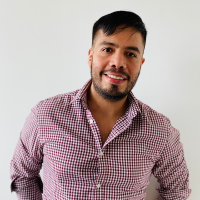
Alexi Rodriguez Arelis, Department of Statistics
Email: alexrod@stat.ubc.ca
Website
I'm an assistant professor of Teaching in the Department of Statistics, primarily focused in the Master of Data Science. I have taught graduate-level courses on probability, frequentist and Bayesian statistical inference, classical regression, advanced regression techniques, causal inference, and experimentation. My pedagogical interest focuses on advancing statistical outreach across various disciplines, emphasizing the development of engaging and accessible learning materials. Concurrently, my research interests lie in computer experiments that simulate physical and engineering systems using Gaussian stochastic processes. This represents an intersection of two fields that form the foundation of data science: statistics and machine learning.
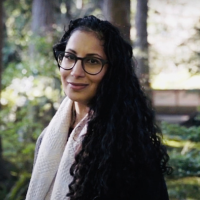
Kiran Sunar, Department of Asian Studies
Email: ksunar@mail.ubc.ca
Website
My work examines literature, religion, and culture in Punjab across its borders and into its diasporas, exploring questions of gender, sexuality, and ecology. My current major project traces the transformations of narrative and performance within the tale "Sohnī Mahīnwāl," a ubiquitous, riverine legend about two lovers who die tragically in their quest to unite. I take a special focus on the intersections of religious transformation (across Sikh, Muslim, and Hindu continuities). I am also working on a project on Punjabi feminist soundscapes, and on gender, sexuality, and equality in the Sikh tradition. My scholarship often blends critical and creative modes.
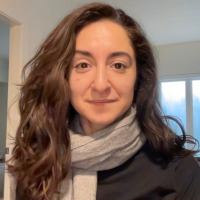
Alexandra Tavasoli, Department of Mechanical Engineering
Email: alex.tavasoli@ubc.ca
Website
My research group at UBC, the Laboratory of Future Industry (LoFI), is focused the challenge of designing hyper-localized manufacturing systems that use locally available materials to make essential supplies such as soap, alcohols, and fertilizers for communities in the event of climate-change and disaster-related supply chain disruption. LoFI’s highly transdisciplinary research also engages in participatory methods to explore how communities can leverage collective action to lead the construction of these systems using locally available resources.
